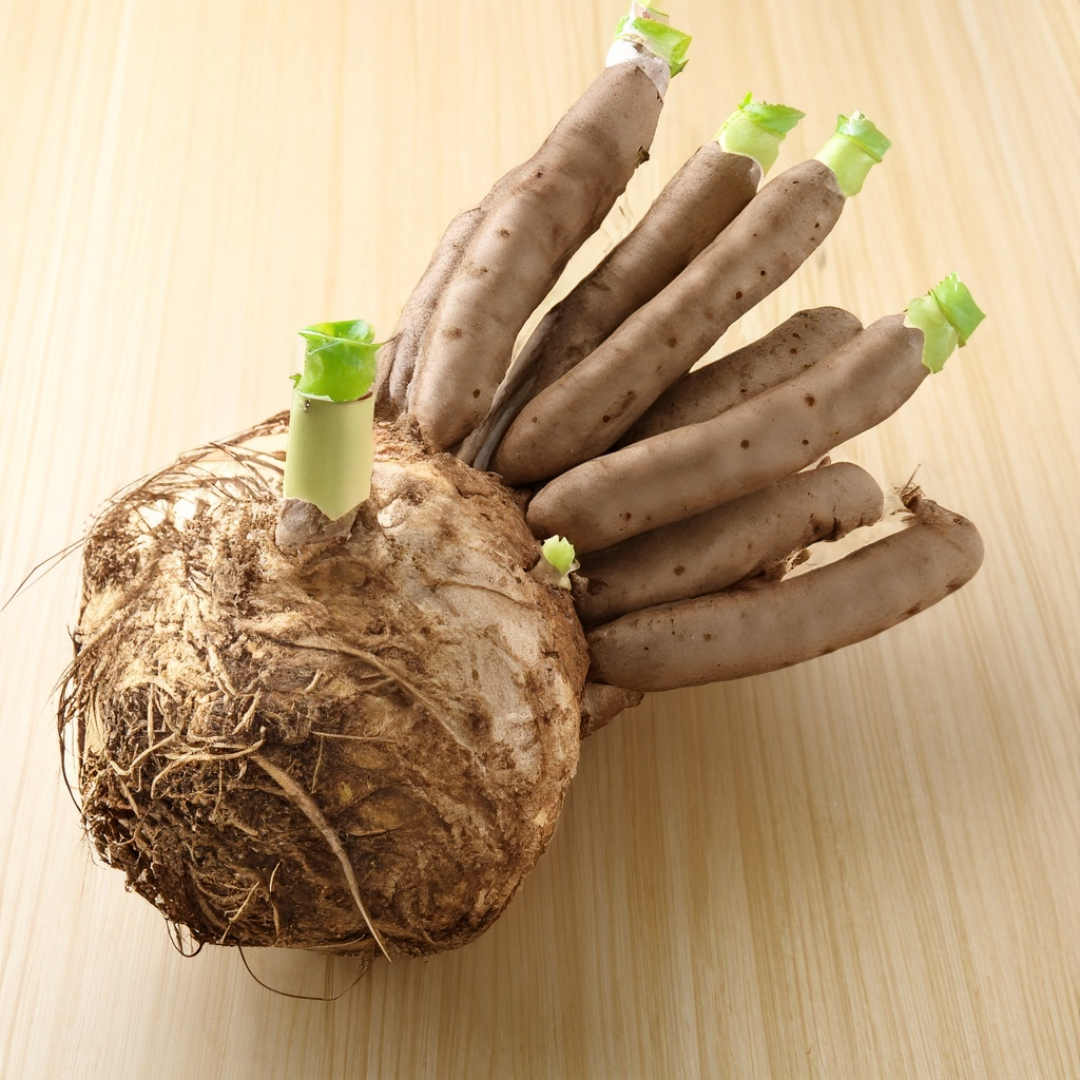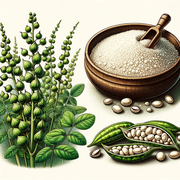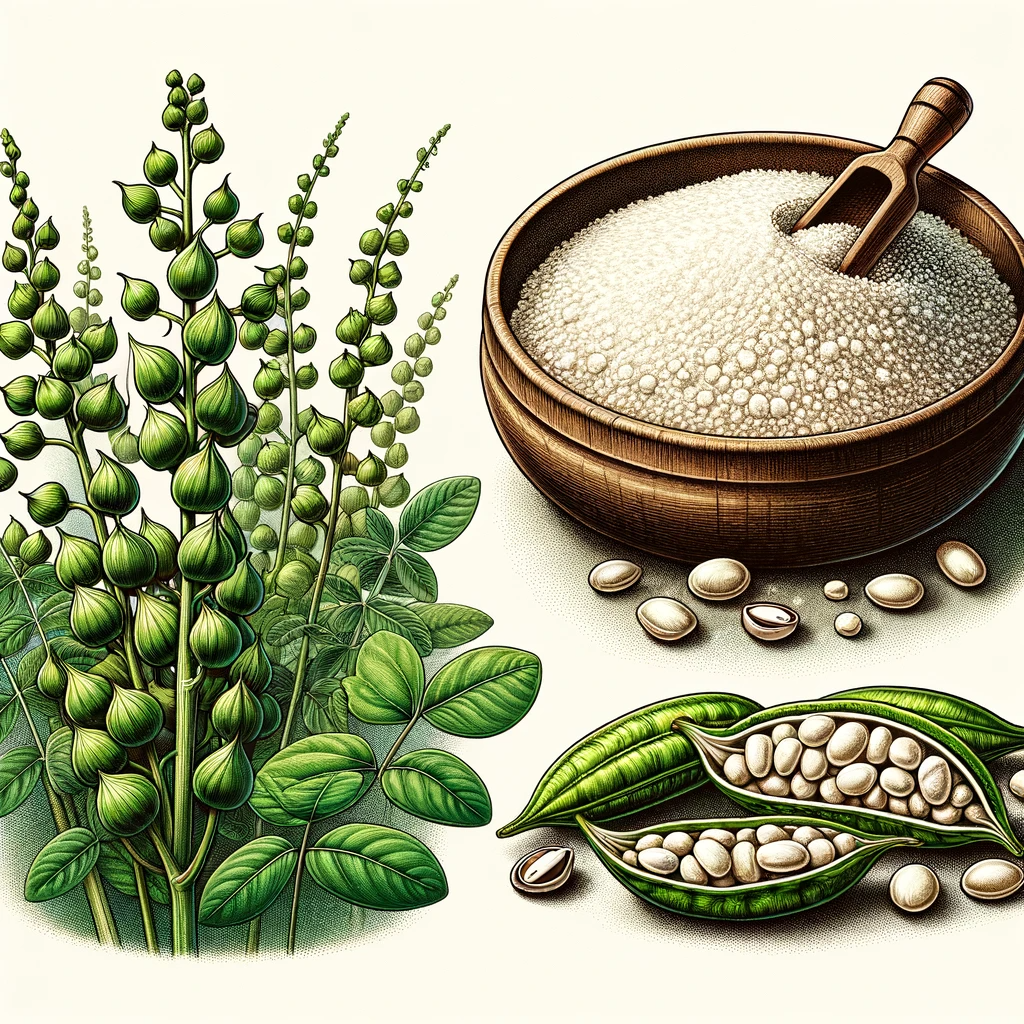Glucomannan: The Natural Fiber for Weight Management and Digestive Health

In the pursuit of a healthier and more balanced lifestyle, many people are turning to natural dietary supplements to support their goals. One such supplement that has gained attention for its potential benefits in weight management and digestive health is glucomannan. Derived from the root of the konjac plant, glucomannan is a natural, water-soluble dietary fiber that has been used for centuries in traditional Asian cuisine and medicine. In this blog, we will explore the science behind glucomannan and how it can be a valuable addition to your wellness routine.
What Is Glucomannan? Glucomannan is a natural, water-soluble dietary fiber derived from the root of the konjac plant (Amorphophallus konjac). It is often used in supplement form as a powder or capsule and can also be found in certain foods.
How Does Glucomannan Work? Glucomannan's unique properties make it stand out as a dietary supplement:
-
High Water Absorption: One of glucomannan's most notable qualities is its ability to absorb water. When taken with a sufficient amount of water, it expands in the stomach, creating a feeling of fullness and reducing appetite. This can be especially helpful for those looking to manage their weight by controlling their calorie intake.
-
Viscous Gel Formation: Glucomannan forms a thick, gel-like substance in the digestive tract, which slows down the absorption of sugars and cholesterol. This can help stabilize blood sugar levels and support heart health.
Benefits of Glucomannan:
-
Weight Management: Glucomannan's ability to create a sense of fullness can aid in reducing overall calorie consumption, making it a potential ally in weight management efforts.
-
Digestive Health: The gel-like consistency of glucomannan can support regular bowel movements and alleviate constipation. It serves as a gentle, natural laxative for promoting digestive regularity.
-
Blood Sugar Control: Some studies suggest that glucomannan may help improve insulin sensitivity and lower blood sugar levels, which is particularly beneficial for individuals with diabetes or those at risk of developing the condition.
-
Cholesterol Reduction: Glucomannan's viscous gel can bind to cholesterol in the digestive tract, potentially reducing the absorption of cholesterol into the bloodstream and supporting heart health.
How to Incorporate Glucomannan into Your Routine:
-
Supplements: Glucomannan supplements are widely available in the form of capsules or powders. Follow the recommended dosage instructions on the product label and be sure to take them with plenty of water.
-
In Foods: Some foods, such as shirataki noodles and konjac jelly, contain glucomannan naturally. These can be integrated into your diet for added fiber and potential health benefits.
Conclusion: Glucomannan, derived from the konjac plant, offers a natural and convenient way to support weight management and digestive health. Its ability to create a sense of fullness, stabilize blood sugar levels, and promote regular bowel movements make it a versatile supplement for those looking to enhance their overall wellness. However, it's important to use glucomannan responsibly, following dosing guidelines and consulting with a healthcare professional if needed. As part of a balanced diet and active lifestyle, glucomannan can be a valuable addition to your journey towards better health.
Glucomannan is a natural fiber used in some of our products as a thickening agent to give a desired thickness and mouth feel. It is included in very small quantities to achieve these results and thus does not greatly contribute towards a supplementation amount. Although, as you can see that it can be used in higher amounts and contribute to a healthy well being. As with any food, ingredient, or supplement there is always a possibility for negative reactions and it is important for you to listen to what your body is telling you, but the vast majority of people do not have any issues with glucomannan.
Explore More:






